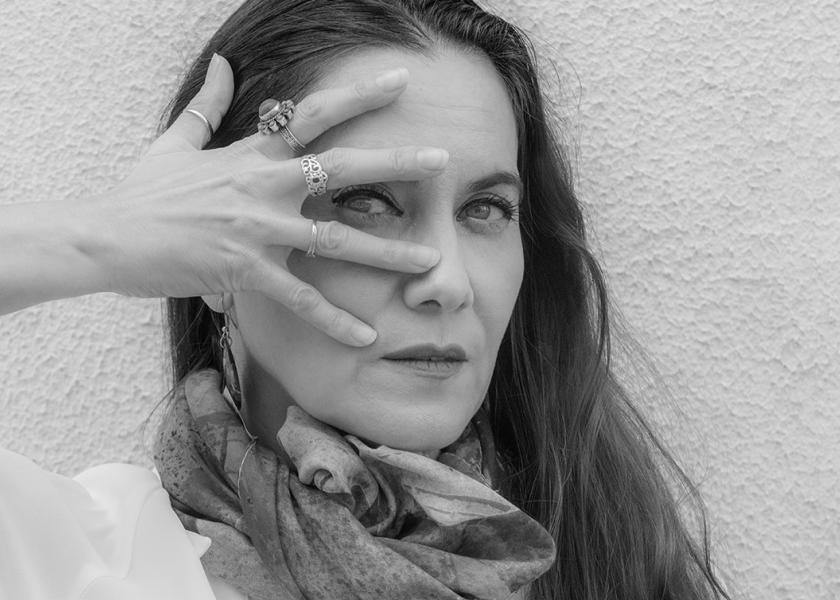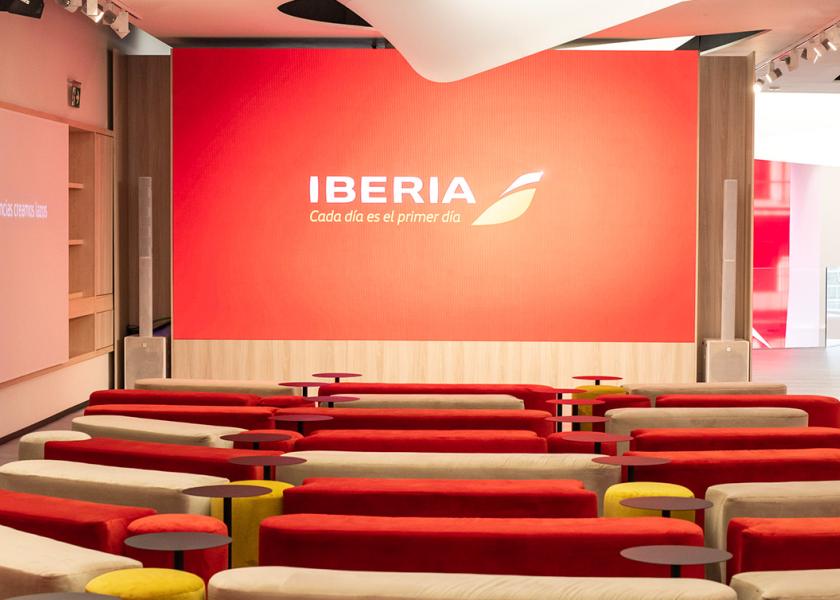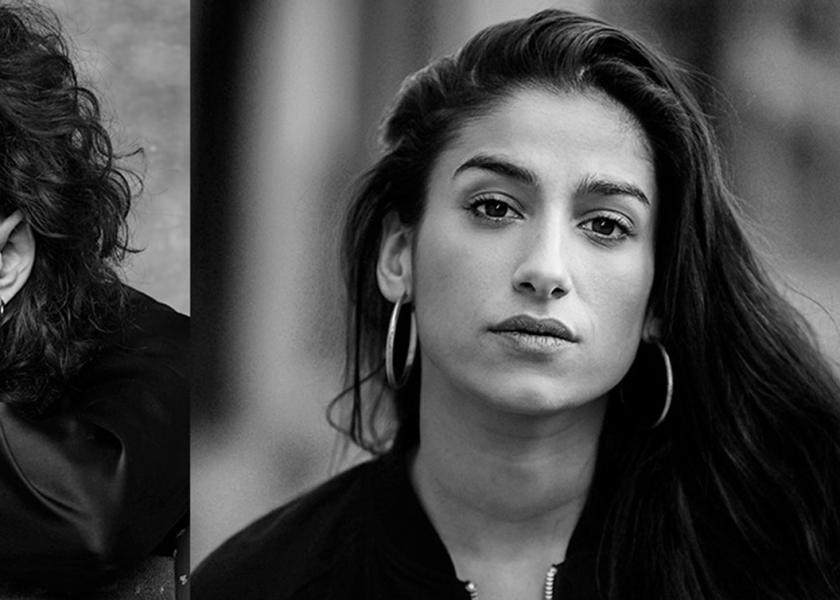Kiki Morente
The evolution of flamenco
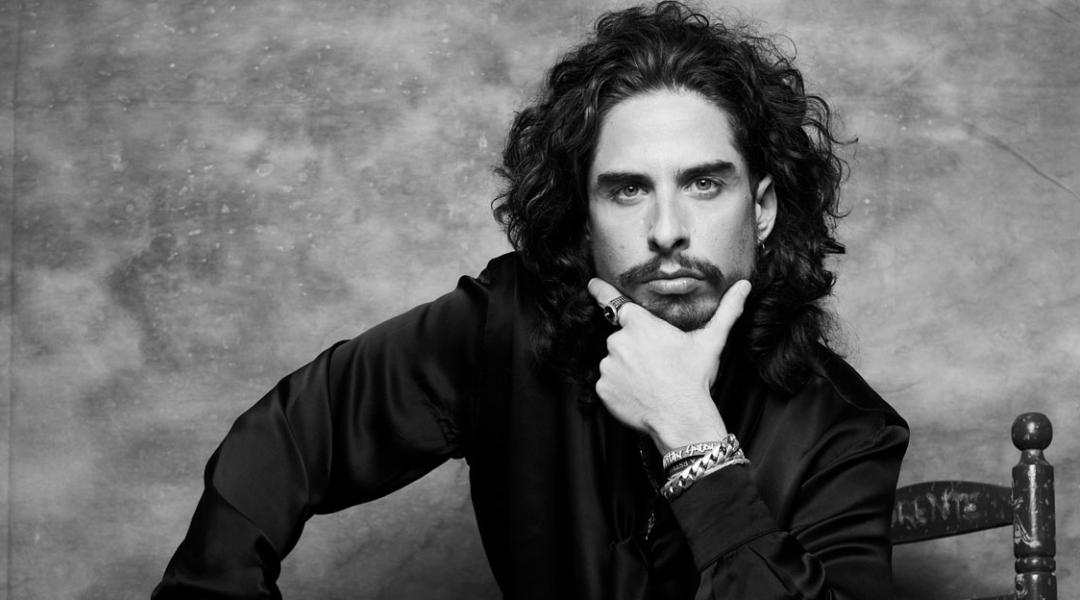
Flamenco has a past, a present, and a future thanks to figures like Kiki Morente. Loyal to his father Enrique Morente’s transformative legacy, this artist revisits classic flamenco singing without turning his back on modernity in his next album, ‘Azabache’. “We’re here to remember how things were done before and to evolve,” assures this flamenco singer in perpetual pursuit of this art, born from his everlasting love for flamenco.
Kiki Morente (Granada, 1989) grew surrounded by talent and that, he admits, “is the best thing that’s happened to me in my life”. His father, Enrique Morente, revolutionised flamenco singing and his mother, Aurora Carbonell, danced flamenco on-stage for years. A creative atmosphere that had a massive impact on young José Enrique —Kiki’s full name—: “Seeing the work, creation, inspiration, and research that goes into flamenco singing so closely made my love for this art grow from a very young age.” A love his sisters Estrella and Soleá also inherited as singers who approach flamenco from different perspectives. “It was my turn to continue the family business, but it came about naturally, I was never forced to do so —he explains—. In fact, I was given the choice to do other things because, above all, they wanted me to keep my freedom.”
Kiki’s third album, Azabache, will see the light this year and this flamenco singer confesses that, inevitably, he always asks himself the same question: “How would he do it?” ‘He’ being his father, Enrique Morente. “Always maintaining my creative and artistic freedom, of course” he clarifies. “He influenced me as a father, but also as a colleague and, in my day-to-day life, I live with that duality. His influence affects both my taste and approach, but also, above all, my work ethic, which consists of being a bit more demanding every day.” So, what can we expect from his new work? “Azabache is a flamenco album that pays homage to classic flamenco singing, to its roots, but we go beyond that and include flashes of more modern sounds and trends. We’re here to remember how things were done before and to evolve.”
“It was my turn to continue the family business, but it came about naturally. My father gave me the choice to do other things because, above all, he wanted me to keep my freedom”
On the 13th of April, Kiki released his new album at home, in Granada, specifically at the jam-packed Auditorio Manuel de Falla. “The connection with the audience was above and beyond —he remembers—. Feeling the love of your people is indescribable, you can feel the passion for flamenco singing, that people know what they are seeing and appreciate the effort.” For such a special occasion, he surrounded himself with his sisters, Estrella and Soleá, his mother Aurora and a line-up of artists including guitarist Carlos de Jacoba and flamenco dancer El Tete. For Kiki, who received the Young Talent Talía Award sponsored by Iberia on the 22nd of April, “the stage is my comfort zone, the place where I can be myself and give my all.” Before the release of his album, Kiki will offer one more concert: on the 18th of June at the Teatro Albéniz in Madrid, as part of the Universal Music Festival.
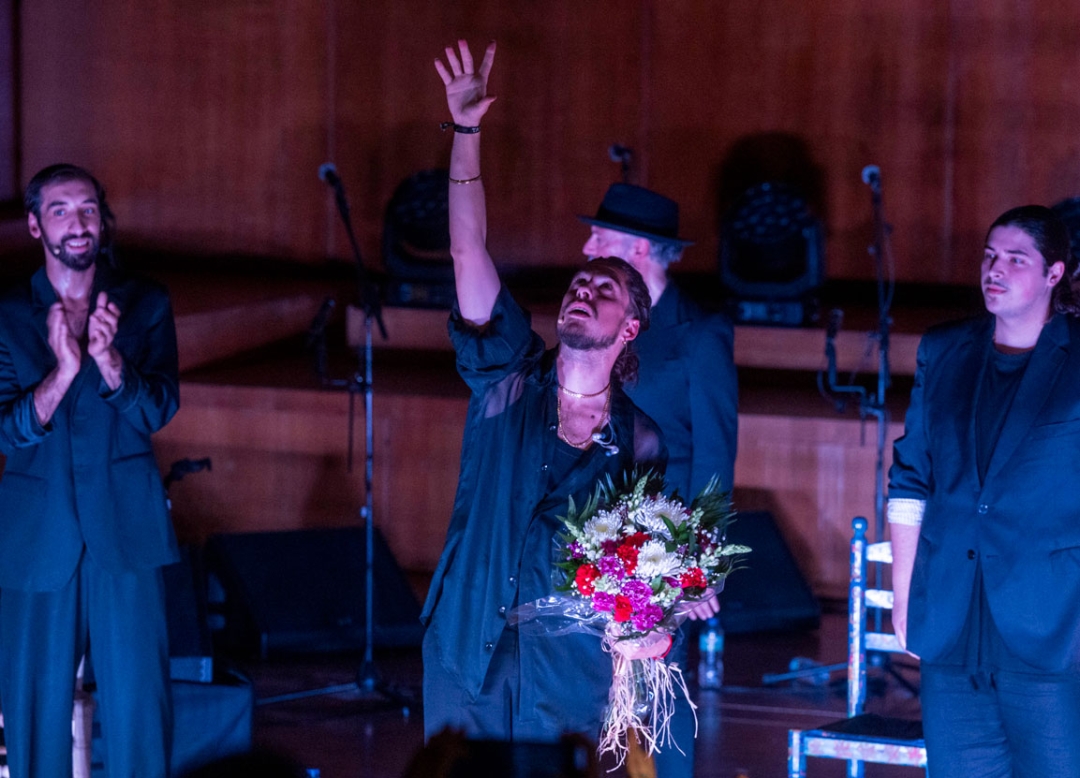
Kiki Morente at the end of his performance at the Auditorio Manuel de Falla in Granada. © Miguel Molina
Kiki’s revisionism, always approached with respect, can already be felt in the album’s first single, Alegrías de Cádiz. Kiki has pulled the guitar from an original recording from 1971 in which his father performed that popular song alongside guitarist Parrilla de Jerez to reinterpret it in the traditional style from Cádiz. “We’ve recovered the ancient flamenco from the caves, that spontaneity flamenco fans had when they got to a cave and sang for joy. We’ve also made a beautiful music video recreating that environment, that ancient aroma, to tell the story of where we come from.”
“You have to look for talent and, if you put effort into it, you end up finding it. Because you might have the skills, but only hard work will bring them to light”
Kiki approaches flamenco as a pursuit, something that’s connected to his view of talent. “You have to look for talent and, if you put effort into it, you end up finding it. Because you might have the skills, but only hard work will bring them to light. Someone talented is expected to be good at executing something and that’s wonderful, but you also have to work on it. So, you have to love what you’re talented at, value that gift, and be motivated to develop it. We must be aware and investigate because the world is full of talent.” Talent grows when it’s found, when it connects in places like the Fundación Enrique Morente 'Casa de la Tradición y la Traducción', which Kiki presented alongside his sisters at the end of 2023. “The Foundation is made with all the love in the world and the purpose is to not lose where we come from, to preserve music, but also culture and art in general. It’s the best tool to share my father’s legacy. This is why we’re working on a full programme and will soon start to organise activities.” With passion, respect, and sensibility, Kiki honours the flamenco lineage he belongs to and has turned music into his means of expression.
The sisters of flamenco singer Kiki Morente also have flamenco in their blood and need no introduction. Estrella, who has just released an album in tribute to La Niña de los Peines (Estrella & Rafael) with guitarist Rafael Riqueni, is one of the most respected and charismatic interpreters of the genre. Soleá, on the other hand, has taken it to the field of indie pop and has collaborated with artists such as Los Planetas or La Casa Azul, with whom she is recording her next album. On June 14 they will share the stage at Noches del Botánico, but before that they will offer a very special meeting at Espacio Iberia: Heredar el flamenco: comprender el pasado para dar forma a su futuro (May 21, 7 pm. Booking). Moderated by journalist César Suárez, editor-in-chief of Culture at Telva magazine, both will share their passion for flamenco and their vision of the future of a style that transcends musical frontiers thanks to voices like theirs.
